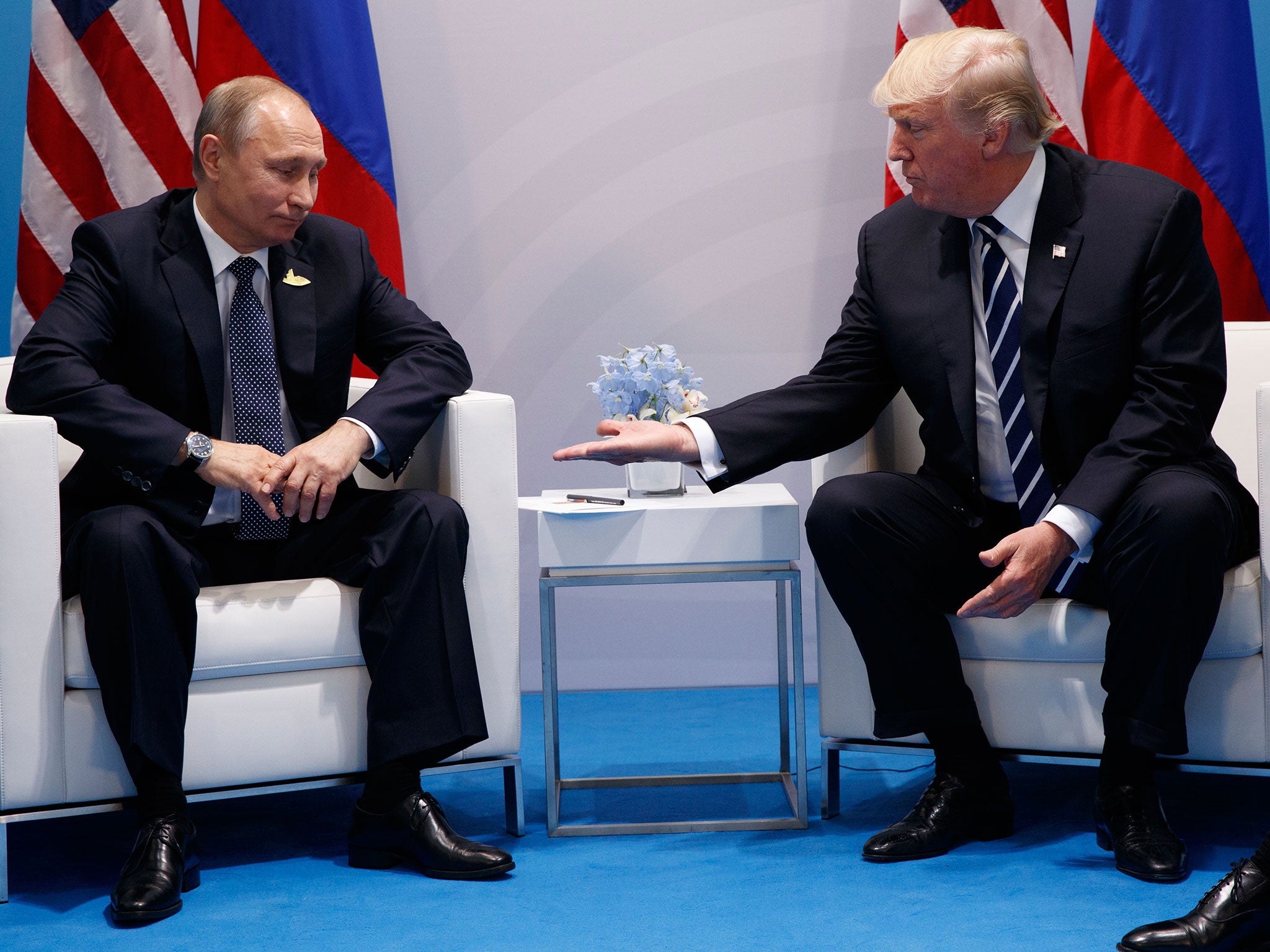Trump and Putin: a curious kind of jaw-jaw, but it is better than the alternative
The resetting of the US-Russia relationship may not be bad for the world

The much-anticipated meeting between Donald Trump and Vladimir Putin at the G20 summit in Hamburg seems to have served the interests of both sides. Mr Trump can say he pressed the Russian leader on the allegations of interfering in his own election, while Mr Putin can say that the US President accepted his assurances that the claims are unfounded.
This play-acting was undermined by the agreement to set up working groups to ensure that Russia does not interfere in future US elections. Why on earth would such committees be necessary if Russia had nothing to do with hacking into the Democratic Party’s emails?
Still, we could hardly expect the alleged perpetrator and alleged beneficiary of such skullduggery to get to the bottom of the matter.
More substantive was the ceasefire agreement in Syria. Presumably this has been worked on for some time, and was merely announced on Friday in order to give the impression of tangible benefits from the summit meeting. But that should not subtract from its importance.
Of course, Syrian ceasefires have been announced, and failed, before. This agreement, to which Israel and Jordan are also parties, may have more chance of lasting. But its main significance is in winding down the tension between the US and Russia in this theatre. After President Trump ordered strikes against the Assad regime in an attempt to curtail its ability to use chemical weapons, there was a danger that the former Cold War superpowers would be sucked into a proxy conflict against each other. This agreement seems a more promising way forward.
Indeed, the resetting of the US-Russia relationship may not be bad for the world. Mr Trump and Mr Putin’s mutual admiration is curious, but it may produce benefits. If one of the problems with Russia’s foreign policy is a national resentment that the country, as a great power, is treated with insufficient respect, then this could be the antidote. It may be that Mr Trump’s extravagant pro-Putin rhetoric will help to reduce Russian aggression in Ukraine and towards the Baltic states. It is not as if President Obama’s scolding was a notably successful policy.
The thawing of relations between the two countries did not all go smoothly. Mr Putin said that he and Mr Trump saw the question of North Korea differently. It may be that the nuclear weapon ambitions of the Pyongyang regime are of more concern to China, but Mr Trump’s rather theatrical hostility towards China at the Hamburg summit on trade matters may not have helped on that front.
We cannot expect Mr Trump to hold Russia to international norms on human rights and non-interference in other democracies. Nor can we expect Mr Trump to take the issue of climate change as seriously as his predecessor. And we can only watch open-mouthed at a US president who uses his unelected daughter as a substitute in international summit meetings, a kind of combined Vice President and Secretary of State. But it may be that a warmer and more constructive relationship between Mar-a-Lago and Moscow is in the world’s best interests.
Join our commenting forum
Join thought-provoking conversations, follow other Independent readers and see their replies
Comments
Bookmark popover
Removed from bookmarks